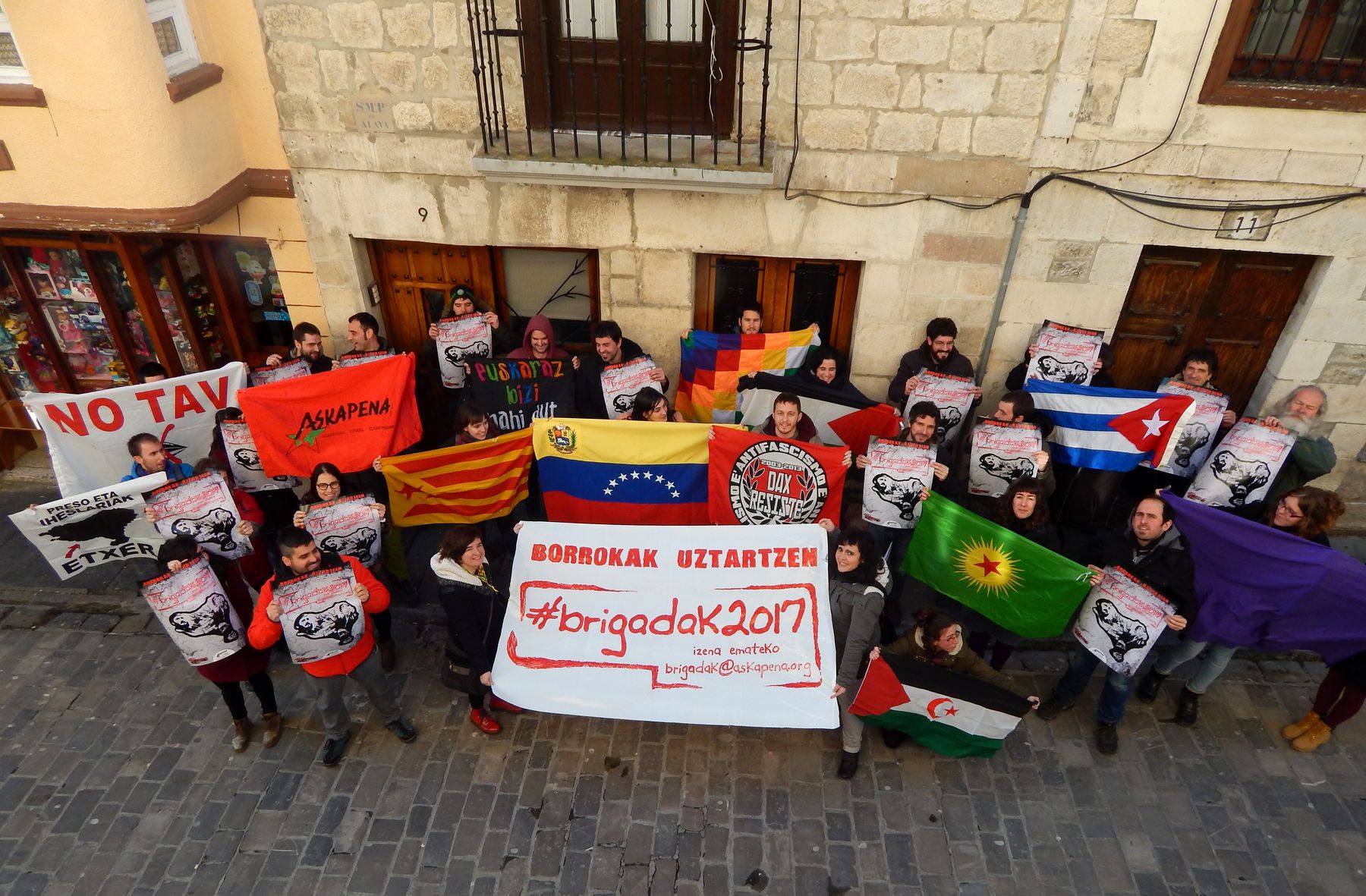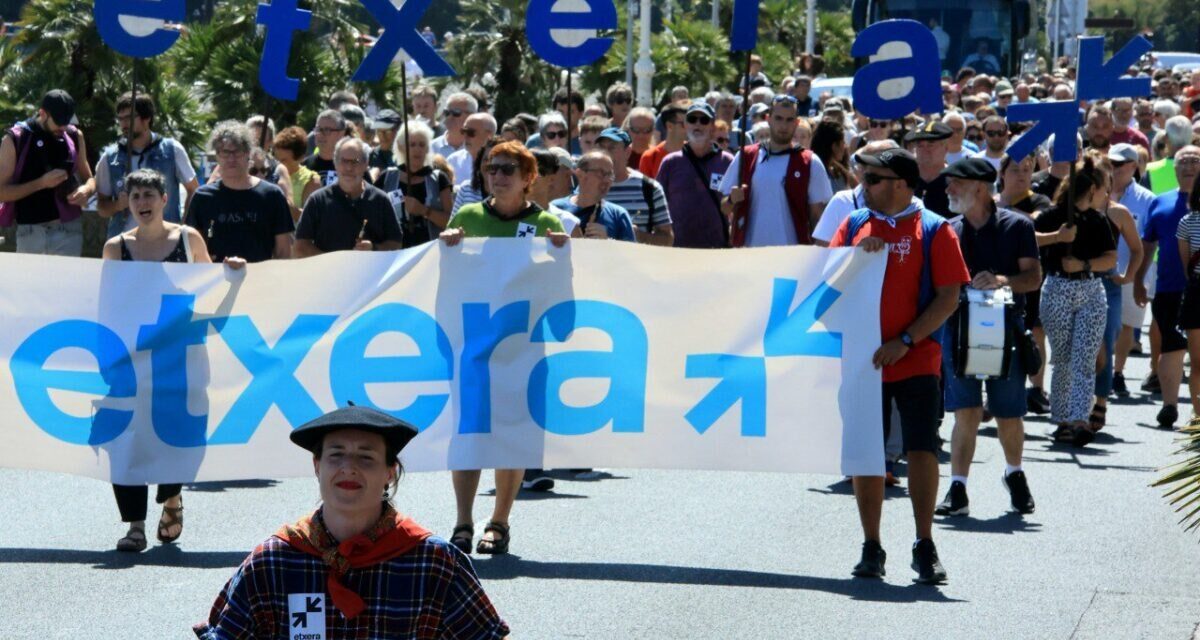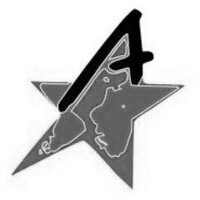30 years of cross-border influence
- The internationalist organization Askapena has been building bridges of solidarity between Euskal Herria and the peoples of the world for more than three decades. We cannot deny that there are 30 spring that bring many changes; even more so if we are talking about fighting territories or oppressed peoples. Aware of this, Askapena has taken the necessary measures to adapt to the needs of the time, maintaining the basic values set at the time of its creation.

The 1979 Sandinista Revolution in Nicaragua must be taken into account when analysing the internationalist movement of Euskal Herria, no, Liberation. “The Nicaraguan process stirred up the consciences of Basque citizens. Thus, we were curious about what was beyond the border,” says Juan José Peciña, a former member of Askapena.
The concern for external conflicts led a sector of society to organize itself, creating local internationalist groups. To guarantee its relationship, the Coordinator of Solidarity Committees of the Basque Country was born, a meeting in which a wide range of people can be found who joined the internationalist organizations of the Basque Country. “It was a plural institution. Therefore, when we began to delve into internationalism, very different strategies appeared,” says Peciña.
Among other issues, the coordinator questioned the role of Euskal Herria in international solidarity. “Most of us thought it was time to deepen the internationalism designed in the Basque Country, because we were also a people in conflict. In this way, round-trip solidarity would be at the centre,” Peciña said. Until then, the coordinator only delved into solidarity with other peoples: “We just gave, we didn’t receive anything.”
In this way, the demand for a change in the strategy of the internationalist organizations was consolidating, which affected the practice of internationalism in the coming years. This was demonstrated at the meeting held on 7 October 1987 in Zarautz, in which the Coordinator of Solidarity Committees of the Basque Country was divided into two groups: On that day, agents Askapena and Komite Internazionalistak emerged. Therefore, Askapena's trajectory began in 1987.
Askapena has had to adapt the presence of European struggles
to the situation in Garai, changing direction on every occasion to strategies. In this regard, at the end of the 1990s, particularly after the 1994 Zapatista uprising, it decided to deepen solidarity with the oppressed peoples of Europe, without marginalizing their activity. “We realized that we needed to deepen solidarity with the oppressed peoples of Europe as a battlefield,” Goienetxea explained. Thus, they extended their activity to countries such as Corsica, Brittany and Scotland.
In recent years, Askapena has been strengthening cooperation with the peoples of Europe. “Imperialism is hard in Europe. It creates oppressive instruments, and we have to fight against it. Other European institutions are also in the same struggle, so it helps us to exchange strategies with them,” said Goienetxea. The fight against NATO, for example, is about that task.
The brigades, as a source
of formation within Askapena's strategy, attach great importance to the formation, organizing brigades on their way. The brigade project was born before the foundation of Askapena: In 1984, the first brigade of Euskal Herria was organized, following the international meeting to deepen solidarity with Nicaragua, mainly with the Sandinista Revolution. At that time, the members of the brigade mainly assisted the cultivation cooperatives or the construction. “We learned a lot from those brigades,” says Peciña.
In this sense, over the years, and especially after the change of strategy of 1987, Askapena has given great importance to the formation of militants and members of the brigade, which who participates in the project of the brigades does not have to be a militant of the internationalist organization. “If we do not know the situation of other peoples, it is impossible to show solidarity with them. The system aims to build a society that is ignorant of the injustices of the environment. Therefore, we must oppose it,” explained Peciña.
In short, it is the members of the brigade themselves who act as a bridge between Euskal Herria and other peoples. Once at the destination, the brigade members are in charge of reporting on the situation of Euskal Herria. In addition, they have the opposite path, i.e. to provide information on these cross-border peoples through conferences, workshops and other initiatives similares.Como has been said, the internationalist organisation maintains a round-trip relationship with other countries. The Friends of the Basque Country (EHL) network is the clearest indicator of the relationship to be given.
On the other hand, the Askapena brigade project is now well received. About 65 people will participate in this year’s brigades. They have already started with pre-processing. “In addition to receiving the minimum training sessions, it is important that members of the brigade get to know each other, as they will then have to spend a lot of time together,” explains Goienetxea. This year, the Askapena brigades will visit Argentina, Uruguay, Bolivia, Brazil, Mexico, Venezuela, Cuba, Palestine, Catalan countries, Brittany, ZAD and Italy.
In general terms, Askapena has made a "positive reading" of the campaign of the Gipuzkoa Municipal Brigade for 2017. “The brigades continue to awaken the interest of the people and, in addition, show great predisposition to those who sign up,” Goienetxea explained. However, Askapena also has a merit in the success of the project: in three months they have offered over 70 talks on the brigades.
30 years without being celebrated It
is advisable to spend leisure time and working time. The members of Askapena work on this road, immersed in the organization of the 30th anniversary. They are now and there: they will meet on 7 October in Berriozar. An all-day programme is being prepared, with political events, food and concerts, among others, to bring together the members of the three decades brigades.
They have also made known the motto chosen to celebrate the anniversary: Compaginating the struggles, sovereign peoples! “In these 30 years we have known many struggles, we have made many friends along the way. So, we are balancing the struggles, because alliances will ensure a certain sovereignty,” says Goienetxea.
Eman ez ezik, elkartasuna jaso egiten du Euskal Herriak. Badira urteak munduko herri askotan, Euskal Herriari elkartasuna adierazi nahirik, eragile internazionalistak agertzen hasi zirela. Bide horretan, duela hamar urte talde horiek saretzeko beharra ikusi zuen Askapenak; eta hala, Euskal Herriaren Lagunak (EHL) sarea sortu zuten. Gaur-gaurkoz, Venezuelan, Irlandan, Italian, Alemanian eta Espainiako Estatuko zenbait herritan, besteak beste, aurki daitezke EHL-ko elkartasun komiteak.
“Euskal Herriaren aurka egindako erasoen arabera antolatu da EHL sarea. Bide horretan, estatuek gure aurka gogor jardun dutenean, indartu egin da EHL”, dio Askapenako kide Izaskun Goienetxeak. Horren adibide, Askapenaren aurkako 2010eko sarekadaren bueltan, mugaz gaindiko eragileek helaraziriko elkartasuna: atxilotuei munduko toki askotatik iritsi zitzaizkien babes mezuak. Egun kargurik gabe libre dauden sei kide atxilotu zituzten sarekada hartan.

Nikaraguako Iraultza Sandinistak esangura handia du elkarte internazionalisten sorreran. Herriko sektore baten kontzientziak astindu zituen, elkartasun eta borroka eremua Euskal Herritik kanpora zabalduz. Horren adierazle, 1980an, matxinatuekin elkartasuna adieraziz, Euskadiko Elkartasun Komiteen Koordinakundeak Donostian eginiko bilkura.
Ordurako, Iraultza Sandinista martxan zegoen. Hain zuzen, Nazio Askapenerako Fronte Sandinistak (FSLN) 1979ko uztailaren 19an lortu zuen Somoza familiaren diktadura garaitzea, gerrilla-taldeek Managua hiriburuan sartzea lortu zutenean; Anastasio Somozaren agintearen amaieraren hasiera izan zen egun hura.
Indar ezkertiarrek osaturiko gobernu demokratikoa finkatu zen Nikaraguan; eta, berori, 1990eko otsailaren 25era arte egon zen indarrean. Agintea galdu zuten egun hartan, hauteskundeak Oposizioaren Batasun Nazionalaren aurka galdu ostean. Ordura arte, gobernuaren aurka ziharduen oposizioak, AEBen laguntzarekin.
Gatazkan murgildurik zegoen Nikaragua. Horretaz jakitun, Euskal Herriko militante internazionalistek laguntza bidaltzeari ekin zioten; besteak beste, materiala eta teknikoak –irakasleak edota medikuak, kasu–. Bestalde, erakunde internazionalistek bultzaturiko protesta kanpainek gora egin zuten Euskal Herrian. Tartean da 1981ean Eskuak Nikaraguatik kanpo. Ez dira pasako lemapean antolaturiko kanpaina; osteko urteetan ere antolatu zuten gisakorik.
The current situation requires a thorough analysis of what is behind titles, demonstrations, the manipulated dissemination of some facts, the dark concealment of others and the disguised propaganda of analysis in most mainstream media. The situation requires that superficial... [+]
Ten years have passed since 5 March 2013 and we cannot forget this gigantic commander of the peoples.
I don't really like the military. Especially in capitalist and career states. However, there are those who carry within the wishes of the people and have committed themselves to... [+]
On 11 March we will go out in the street ‘NO to NATO and the EU! Basque Country anti-imperialist!”. It is a symbolic date, when the Basque Country refused entry into NATO. 37 years later we will leave to Euskal Herria working street, once again, to refuse the imperialist... [+]
“They have called to declare six Bizkaia metal workers to participate in the 11 days of the 2022 strike,” said Olatz Silva in the news released on 10 January in Berria. If we read this and add the list of recent times, the result is impressive: the five of Leioa, the Bilbao... [+]
Internazionalismoak "herrion askapen nazional eta sozialean" daukan garrantzia mahai gainean jartzeko eta udagorritzen daramaten urteek "etenik izan ez dezaten", bueltan dira brigadak bi urteren ostean, 35 urte udagorritzen! lelopean.





















